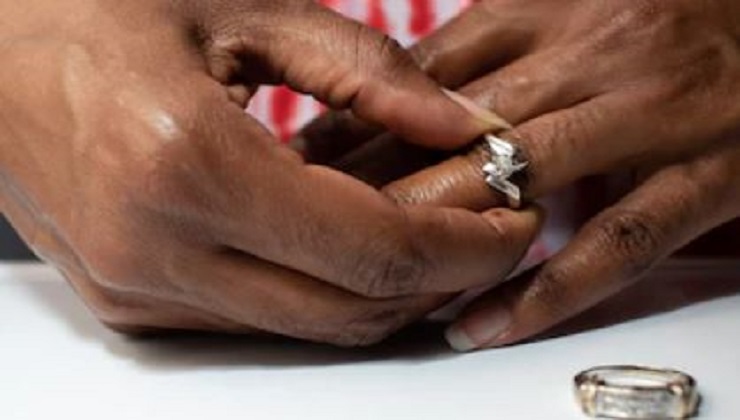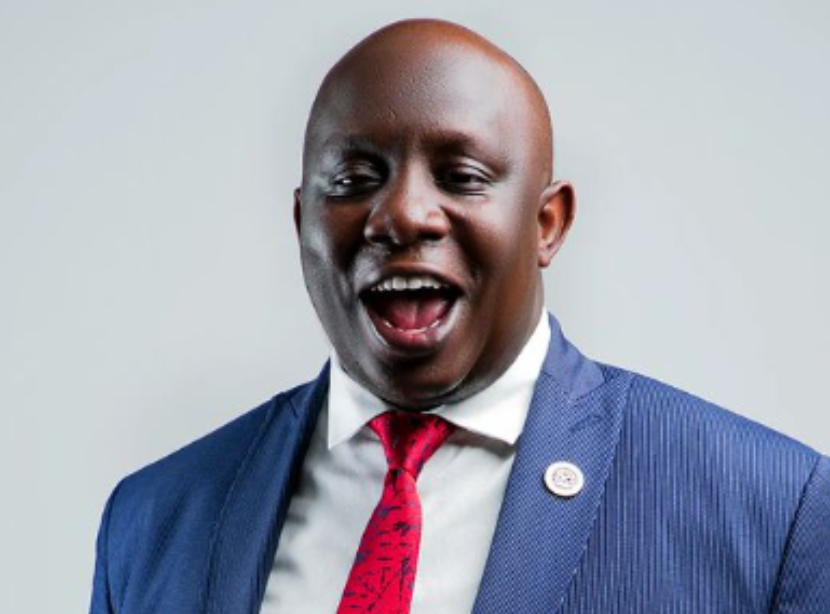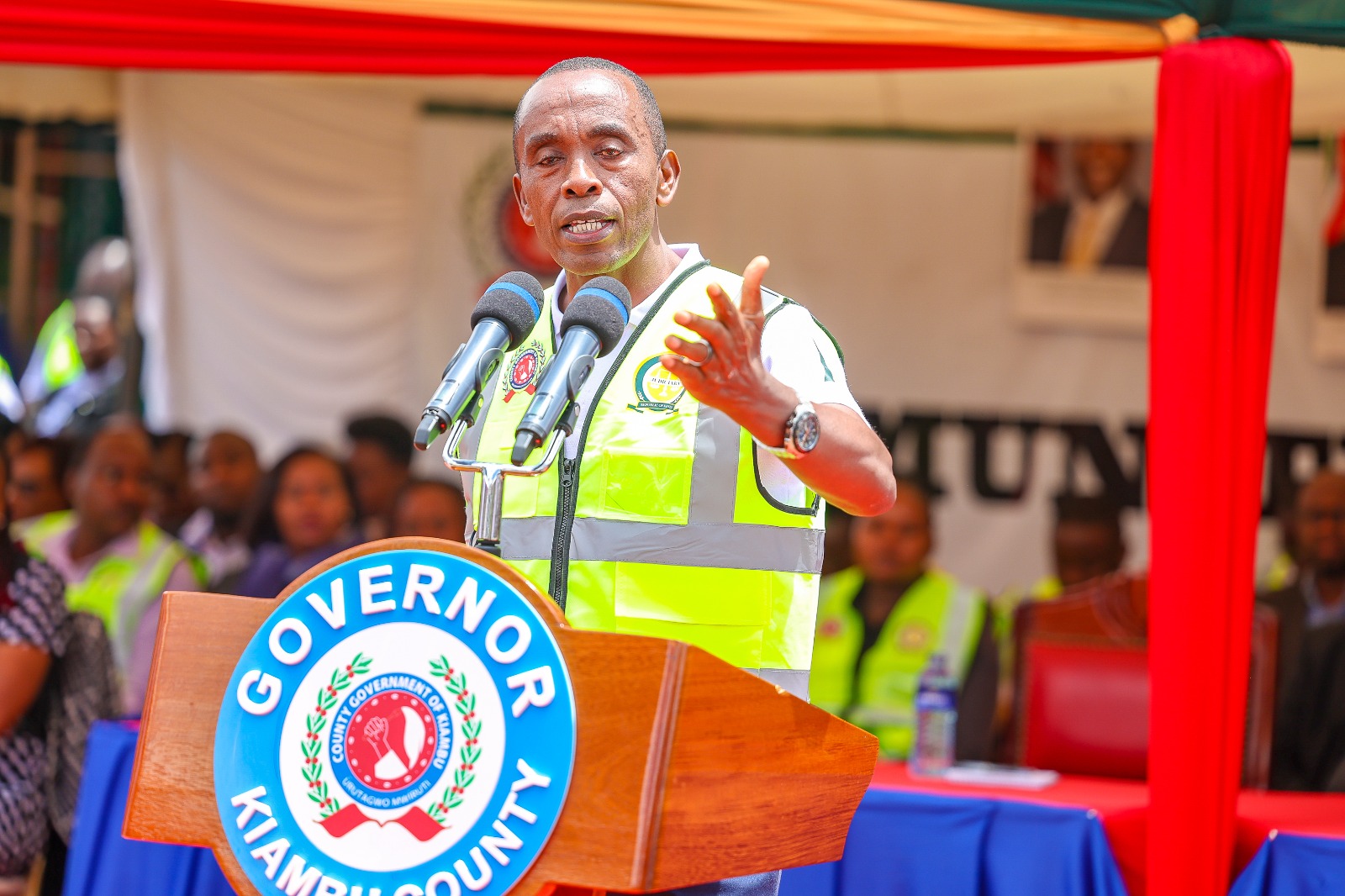Why peòple die days to wedding day

When one half of the couple dies few days to the wedding, many questions are bound to be asked. But when one decides to go ahead and marry the deceased, many are left wondering how a living person exchanges vows with the dead.
Recently, the country was treated to a heartbreaking news of a man who decided to go ahead and wed his late wife who had died few days before the wedding. Stanley Macharia and Nancy Muthoni had planned to solemnise their marriage last Saturday after living together for 26 years. They held a customary wedding in 1998 and just wanted to officiate their marriage before God and the church.
However, three weeks ago, Muthoni fell sick and she was rushed to a nearby health facility where she was treated and went back home, hopefully, she will recuperate on time, in readiness for her wedding.
But her condition worsened and she lost the battle, days before the wedding while admitted at Kenyatta National Hospital.
With all the plans at an advanced stage, her husband said the plan to have the wedding will not be cancelled, only that it would be done in a different style and that’s why her burial was held on the day the wedding was to happen. While the groom and bridal party donned the attire they were to wear for the wedding, the deceased wore her white wedding and was laid in a sparkling white casket.
While the family of the deceased and the church decided to grant the deceased her wish for a wedding, other Kenyans felt like it was going overboard.
In some communities, such a practice is perceived as normal, but for others, such actions are abominable, which should be shunned like plagues. For example, In Kalenjin, elders view marriage between the living and the dead as a curse.
Joshua Sigilai, a Kalenjin elder, says that marrying a dead person is an abominable act that attracts condemnation and serious rebukes because it is an unacceptable culturally and even religiously. He says when a person chooses to do so, clan members would have to be called in so that they can perform some rituals for cleansing the individual, his family and also children. This ritual is meant to send away the spirits of the deceased from lingering around and allow it to go to its resting place.
“In Kalenjin, nobody is allowed to marry a dead person. When the two are courting, they are deemed as prospective husband and wife, but if one of them dies, that’s the end of the relationship. No marriage ceremony is allowed to take place between the dead and the living,” Sigilai says.
Ground reasons
He says that for a person to die just before their wedding, there could be an underlying curse against the family that no one has ever come out to talk about and so the rituals can be used to also deal with the curse and also, payment of appeasement money must be made. He says in some instances, the tribes which the two lovebirds come from might have been in terrible conflict that could have resulted in deaths of people. As a result, the marriage cannot take place until the two sides reconcile.
“Someone may die before marriage because of curses running in the family. This could be from things such as conflicts that the two families have had in the past and the spirits would not allow them to intermarry. That thing may cause death to one of the partners to signify that the marriage is forbidden,” he says, adding that parents may also have refused to let such a marriage to take place, but the couple refused to bulge into the pressure by going ahead and marrying. He further says that instituting a posthumous marriage is likely to worsen the curse.
Aside from curses, the elder points out another possibility for a premature death just before the wedding to be failure by parents to settle their own dowry debts. The effects then trickles down to the children, especially those who are at a wedding stage. Sigilai says fathers of either of the spouses must first ensure that they settle any pending dowry agreement between them and their inlaws, before receiving dowry for their own children.
“Dowry must be paid without failure because it’s not good for a family to receive dowry for their daughter, yet the dowry for the would-be bride’s mother has not been settled. That way, it will mean that they didn’t appreciate their mother’s family and at the same time they want themselves to be appreciated for giving out their daughter for marriage. This disagreement is recipe for losing a partner just before a wedding ,” he says.
While posthumous marriages have been witnessed in foreign countries, Sigilai upholds that in the modern era, people have become ignorant to forbidden acts, which are likely to result in serious curses, which may end up affecting people in the family instantly, or years to come.
Accept and move on
“People are becoming stubborn and rebellious to cultures. Nowadays people think they can do anything and get away with it, but that is not the case. These actions eventually come to haunt them or their children someday. If someone marries the dead, he may never find someone else to marry again because the spirit of the death will prevent him from getting another spouse,” he says.
He says that cases of tragic deaths of partners days before the wedding should be treated as an unfortunate incidents and the bereaved spouse should accept and move on when the mourning period is over. That way he or she won’t be attached to the deceased person, which then allows them to remarry in future and the marriage is assured of lasting.
The former councillor warns that posthumous marriages should never be allowed to take place, adding that people should seek guidance from the elders before going into such weird marriages. “Young people must go to the elders to seek guidance. They should understand that, while their acts may have no consequences in the foreseeable future, it will eventually return to haunt innocent people,” he concludes.
















